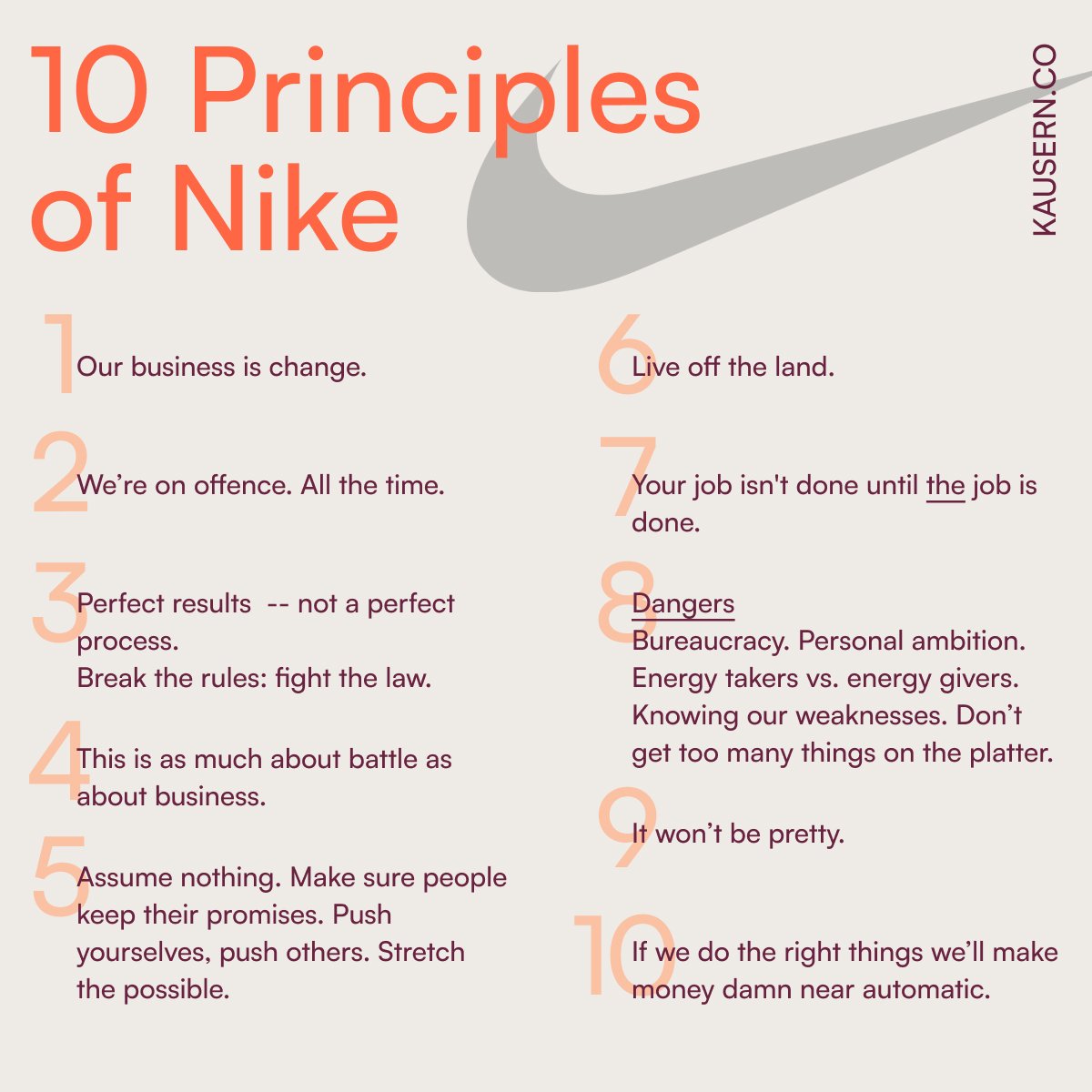The 10 principles of Nike
The original 10 principles: Lessons from a 45-year old internal memo that paved the way for Nike to become a $135B company.
The movie Air (a 9/10 for me), saw a renewed interest in the “10 Principles of Nike”, which outlined Nike’s gamble in creating a shoe line around 18-year-old Michael Jordan, then a rookie who had yet to step foot on an NBA court. Yes, the iconic Air Jordans: a shoe which revolutionised the world of sneakers and sports culture and is still selling like hot cakes today.
These original 10 points were created by then Nike Director of Marketing Rob Strasser in 1977, during the us-against-the-world era where Nike had to face off against larger rivals like Adidas. Strasser typed out this list, circulated it internally, and requested the team live by these words.
Granted some of these principles haven’t aged so well (it has since been replaced by the “11 Maxims”), but most of them are still applicable in today’s very competitive economy. The memo is raw, simple, and straightforward, and taps into the company’s early “startup” culture – to do whatever it takes to win.
1. Our business is Change.
The big guarantee in business and life is: change. The business landscape has shifted in the post-pandemic world. What got us here won’t get us there. To stay on course we have to pivot quickly.
2. We're on offence. All the time.
Defensive companies don’t win championships.
3. Perfect results count - not a perfect process. Break the rules: fight the law.
A goal is a goal is a goal. At the end of the day, all that matters are the results we’ve achieved. We can perfect the process along the way.
4. This is as much about battle as about business.
Don’t be naïve. Business is war. 9 out of 10 times, our competitors will destroy us if they can.
5. Assume nothing. Make sure people keep their promises. Push yourselves, push others. Stretch the possible.
Take personal responsibility. Keep each other accountable. Challenge and push each other across the finishing line.
6. Live off the land.
Don’t solve problems by throwing money at them. Use what we have - creativity and imagination.
7. Your job isn't done until the job is done.
A job half done is as good as none. Make it clear to the team when they are required to go beyond their usual 9-to-5 to complete an urgent project, e.g. a multi-million pitch submission.
8. Dangers: Bureaucracy. Personal ambition. Energy takers vs. energy givers. Knowing our weaknesses. Don’t get too many things on the platter.
Self-explanatory.
9. It won’t be pretty.
The path to greatness isn't always pretty. There will be blood, sweat, and tears, but it’s about learning to succeed even after a string of failures. (A fantastic monologue in the movie predicts Michael Jordan's career and the fate of his father.)
10. If we do the right things we’ll make money damn near automatic.
Always think about how to serve our customers with great products and service at an acceptable price. This way we will make money, not the other way round. ●

